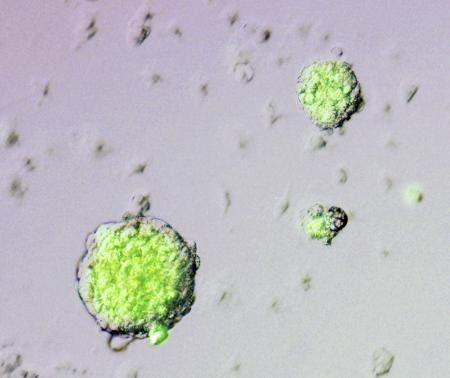Stem Cell Patient grows a Nose on Back Eight Years After Tissue Injection to Cure Paralysis

In one of the strangest outcomes of stem cell treatment till date, a woman has shown to have developed a nose-like growth eight long years after a failed stem cell treatment that was then used to cure her paralysis.
Stem cells because of their capability of generating other cell types are widely known as a "repair kit" for the body.
It was in de Egas Moniz Hospital, Lisbon, Portugal, where the unnamed woman, officially a U.S. citizen, had her nose tissue implanted in her spine.
Doctors expected that the implanted cells in turn would develop into neural cells and help in repairing the existing damaged nerves of her spine.
But unfortunately, the treatment didn’t work.
Then, surprisingly, in 2013, eight years after this particular operation, the woman, then 28, complained of an increasing pain in the same area where the implantation took place, followed by which the physicians observed a three-centimeter-long growth. It was found to be mainly nasal tissue, as well as bits of bone and nerve branches which had no connection with the spinal nerves.
Neurosurgeon Brian Dlouhy from the University of Iowa Hospitals and Clinics in Iowa City, who removed the growth, confirmed the growth as benign, but there was secretion of a 'thick copious mucus-like material', which was probably why it caused so much pain on her spine.
Jean Peduzzi-Nelson, the advisor of the team which conducted this surgery, told the New Scientist, "I am saddened to learn of this adverse event, however, the incidence of this problem is less than one percent. Many patients receiving this treatment have had remarkable recovery."
In 2010, the Lisbon researchers published their findings based on this method. The data included 20 people who were paralysed at different parts in their spine.
“Eleven experienced some recovery of movement or sensation; one person's paralysis got worse, one developed meningitis and four others experienced minor adverse events,” the report suggested.





















